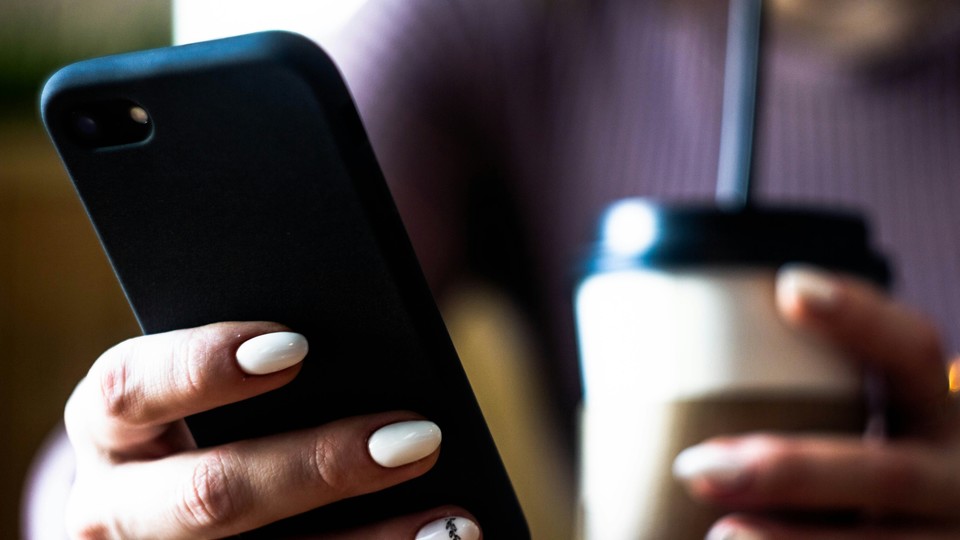
Acting The Part
Can Shopping Like A Math Whiz Make You Into One?
Based on research by Jaeyeon (Jae) Chung and Gita V. Johar
Can shopping like a math whiz make you into one?
- Feeling ownership over a product can activate a person’s identity in areas related to the product. It can also deactivate a person’s identity in areas unrelated to the product.
- When product-related identity is activated, performance in activities related to the product is likely to improve.
- At the same time, performance in non-related activities is likely to get worse.
Want to get better at a task? It may be possible to shop — or imagine — your way to success.
Just pretending to shop for items associated with certain skills (for example, a fancy calculator) may actually improve your performance in areas related to that skill (in this case, math).
That’s because our identities are highly influenced by our possessions — which we often experience as part of ourselves. As a result, this activation of an identity by our possessions, even imaginary ones, can enhance performance. For example, one study found that by using a pen labeled “MIT” on GRE exams, students scored higher than those using a standard Pilot pen, particularly when they believed that their inner ability was fixed, and that they had to rely on external products to improve their ability.
In 2018, Rice Business professor Jaeyeon Chung and Gita V. Johar of Columbia University took a close look at the implications of this human quirk.
In a series of experiments, Chung and Johar found that the product-related activation of our identities (e.g., calculator ownership awakening an inner math prodigy) can actually de-activate our identities unrelated to the product, and undermine performance in other tasks.
For example, shopping for a calculator could make you perform better on a math test, but worse on a creative-writing essay.
Merely owning an item, the scholars discovered, is only part of the equation. Self-concept clarity — that is, the strength and clarity of one’s personal beliefs — makes a difference as well. A person whose self-concept is well-defined, consistent, and stable is less likely to be influenced by external factors such as possessions.
To measure the phenomenon, Chung and her colleague devised a series of experiments. The results showed that when a person merely imagines an item she longs to own, two inner changes occur: Identities related to the product are awakened, and identities unrelated to the desired object are stifled. Strikingly, these changes have measurable consequences on the performance of tasks.
But how do you awaken an inner self through possession, and measure its effects? The team found an ingenious approach: They assigned people to a control group or an experimental group, and then asked them to peruse an online IKEA. The control group was told to shop for items to go in a senior citizen home. The experimental group shopped for items to go into their own homes.
The experimental group, who got to imagine items such as a MALM bed in their own bedrooms, were more likely to think of themselves as artistic designers than were their counterparts, the imaginary retirement home shoppers. The exercise, in other words, had activated participants’ art-related identities.
Next, Chung and Johar asked everyone to complete a math task. The experimental group scored lower at this than did those in the control group. Their newly awakened identities as design mavens had undermined their ability to solve math problems, apparently because they were unrelated to the fetching Scandinavian décor they’d imagined owning.
The researchers then took another approach. Asking one group of participants to imagine owning a calculator, they activated that group’s “math identity.” They then asked all the participants to engage in a short IQ test. Though there was only one test, the researchers labeled it two different ways, indicating to some participants that the test measured math skills, and to others that it measured creative writing skills.
Despite the test being exactly the same, the would-be calculator owners performed markedly worse when they thought they were doing a creative writing project than when they thought the test measured their math skills. Why, exactly? The researchers concluded that imagining owning a piece of math-y technology and activating their “math person identities” tamped down participants’ “creative writer” identities — so much so that it actually degraded their performance in that area.
In a third experiment, Chung and Johar asked a group to envision calculators that they actually owned, rather than simply imagining buying one. Again, the group that felt ownership regarding a math tool performed better on tasks that seemed math-related, but worse on tasks that seemed unrelated to math. The finding was robust when the task itself was exactly the same and the only difference how the task was labeled.
Interestingly, identity activation and performance were influenced by the participants’ level of self-concept clarity. Some people have a clear and consistent self-view that does not vary over time; these are individuals who are less likely to rely on their possessions or other environmental stimuli to infer who they are. These individuals were less likely to be affected by the “ownership” of a calculator.
In other words, self-concept clarity limited the power of ownership on identity activation and performance. Chung and Johar’s findings offer practical implications for both business and academia. Owning or even imagining that you own an object linked to a particular task can make you feel — and act — more like an adept.
So the next time you have a big quantitative test coming up, consider browsing for a high-end calculator first — and unwinding with your oil paints or “Infinite Jest” when you’re done. For best results, of course, take the test with your Rice-labeled pen.
Jaeyeon (Jae) Chung is an assistant professor of marketing at Jones Graduate School of Business at Rice University.
To learn more, please see: Chung, J. & Johar, G. (2018). The seesaw self: Possessions, identity (de)activation, and task performance. Journal of Marketing Research, 55(5), 752-765.
Never Miss A Story


